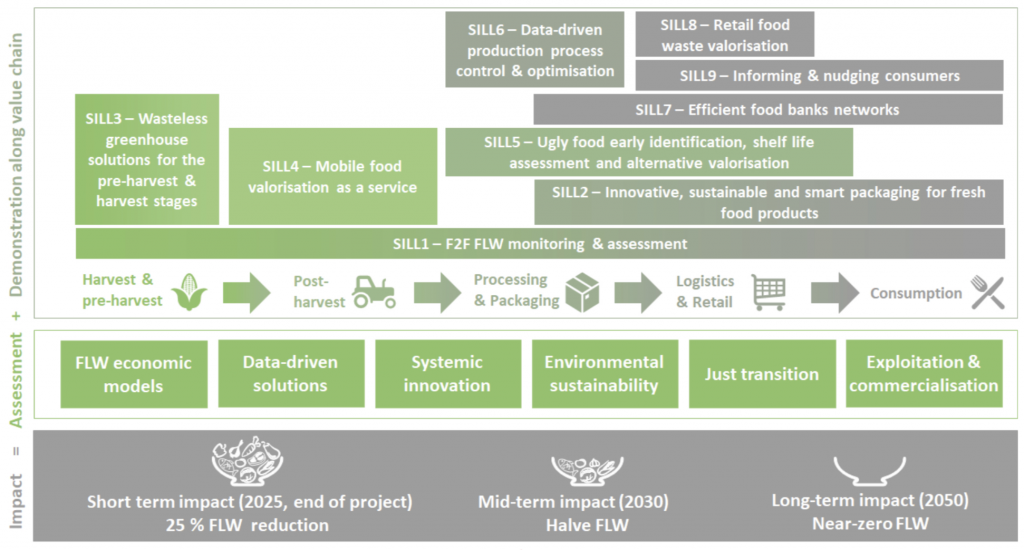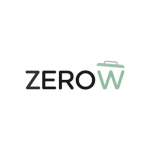ZeroW
In 2011, the FAO estimated 30% of the amount of Food Loss and Waste (FLW) generated by the total food production.
The project aims to be a major driving force in reducing Food Loss and Waste (FLW) by employing systemic innovation, thus supporting the dual ambition: to halve FLW by 2030, as set in Green Deal’s Farm to Fork Strategy, and ensure the enabling conditions for near-zero FLW by 2050.
This systemic innovation approach is based on the development of a core demonstrative environment supporting nine Systemic Innovation Living Labs (SILLS) along the value chain, complemented by assessment activities to ensure a long-term environmental and economic sustainability of zero-FLW solutions and a just transition towards a near-zero FLW system.
ZeroW aims to demonstrate the applicability of systemic innovations in addressing the current food system’s FLW lock-in effects and steer a just transition towards a near-zero FLW system.
Our Objectives:
- To set up, prototype, test, and demonstrate systemic innovation solutions for significantly reducing FLW
- To establish semantic interoperability through a managed European zero FLW Data Space and to provide collaborative business and governance models for data sharing
- To provide a suite of data-driven FLW intelligence services for the digital support needed and to generalize the FLW Smart Applications developed in the SILLs, to be used by external users to reduce FLW
- To assess the impacts, risks, and sustainability trade-offs of the innovative solutions demonstrated in the SILLS and to provide cluster-, place-, context- & actor- and gender-based interpretation of results
- To scale up the FLW systemic innovation solution and approach, build capacity towards near-zero FLW, and build region-specific strategies to stimulate investment in FLW reduction
- To advance ZeroW’s innovative solution commercially and to protect the commercially sensitive and strategic IP through 3 formal patent filings
- To define a ‘just’ transition pathway to near-zero FLW, including intermediate EU targets, and to deliver short- & medium-term FLW policy recommendations
- To engage with EU, National, and global initiatives on a dialogue towards FLW policy, regulatory and commercialization opportunities and to undertake appropriate dissemination and communication actions to create a credible, sustainable interest for large-scale adoption of ZeroW results and solutions and thus maximize its impact during and beyond the project’s duration.

ZeroW gathers a multidisciplinary team comprised of 46 partners from 17 European countries.
SAFE will be in charge of coordinating all activities for the design of policy recommendations for just transition to a near-zero FLW. Together with the partners, SAFE will contribute to the construction of alternative transition scenarios towards near-zero FLW pathways, the definition of a ‘just’ transition, and the identification of intermediate targets. Based on its past experience and projects developed under the LIFE program of the European Commission, SAFE will also provide insights and expertise on FLW reduction policy and suggest ways forward.
For more information, check out the project webpage on the European Commission website
The project has received funding from the European Union’s Horizon 2020 research and innovation programme under grant agreement No 101036388





